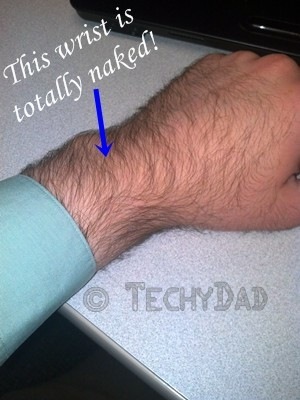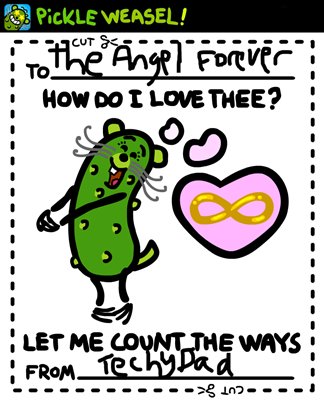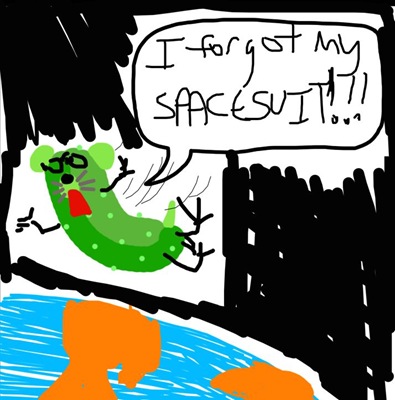 When you get an Asperger’s Syndrome diagnosis, one of the first things you do is go on a quest for information. Thankfully, there are a lot of resources out there. Here are a few of the ones we have found over our time.
When you get an Asperger’s Syndrome diagnosis, one of the first things you do is go on a quest for information. Thankfully, there are a lot of resources out there. Here are a few of the ones we have found over our time.
Books
Books are, of course, a great resource. Many books have been written about Asperger’s Syndrome. Some cover general information, some are designed to allow children to understand Asperger’s Syndrome, and some help educators know how to help Aspies reach their full potential.
Here are a few of the ones that we like:
Can I Tell You About Asperger Syndrome?: A Guide for Friends and Family – This book begins with an introduction from a child with Asperger’s and moves on to techniques that can help an Aspie learn and deal with the neurotypical world.
– This book begins with an introduction from a child with Asperger’s and moves on to techniques that can help an Aspie learn and deal with the neurotypical world.
All Cats Have Asperger Syndrome – This is a humorous book relating cat behavior to Asperger’s Syndrome. Behind the humor, however, is a very accurate telling of what it is like to have Asperger’s Syndrome.
– This is a humorous book relating cat behavior to Asperger’s Syndrome. Behind the humor, however, is a very accurate telling of what it is like to have Asperger’s Syndrome.
Asperkids: An Insider’s Guide to Loving, Understanding, and Teaching Children with Asperger’s Syndrome – This book gives a good overview of techniques that assist kids with Asperger’s Syndrome to deal with the neurotypical world. It also helps describe some ways to teach children on the spectrum.
– This book gives a good overview of techniques that assist kids with Asperger’s Syndrome to deal with the neurotypical world. It also helps describe some ways to teach children on the spectrum.
Spaghetti is NOT a Finger Food ( and other life lessons ) – This is an e-book I’ve already reviewed. It is a story detailing a day in the life of Connor, a kid with Asperger’s. The story is told through Connor’s eyes, so you get to see just what he is thinking as events unfold. It is a great book to read with kids to help describe some of the challenges that kids with Asperger’s Syndrome have.
– This is an e-book I’ve already reviewed. It is a story detailing a day in the life of Connor, a kid with Asperger’s. The story is told through Connor’s eyes, so you get to see just what he is thinking as events unfold. It is a great book to read with kids to help describe some of the challenges that kids with Asperger’s Syndrome have.
Blog Posts and Web Pages
Of course, there are a lot of blog posts online dealing with Asperger’s Syndrome. Here are a few that I’ve recently found useful/informative.
The AQ Test – This is a quick test to help determine if you have Asperger’s. If you score above 32, you likely have Asperger’s Syndrome. The average for those who are neurotypical is under 17. (I scored a 36.) Of course, as with any test, it isn’t completely accurate. You could score high and not have Asperger’s Syndrome. Still, a high score does mean that Asperger’s is a definite possibility.
Ten Things You Should NEVER Say To An Autism Parent – This is a great blog post detailing some of the questions that you are bound to hear when you have a child with Asperger’s/Autism. Everything from questioning your parenting skills to doubting the diagnosis (because random strangers are better informed than your doctor) are covered.
Debunking 6 Myths About Asperger Syndrome – This has a few of the most common misconceptions that people have about those with Asperger’s Syndrome. It provides some needed insight to dispel the myths.
Asperger’s and Literalism, aka Why We May Seem Condescending and Pedantic – This was a great post by a friend of mine, Christina. Christina has Asperger’s and has a son on the spectrum as well. Her blog post is a good insight into why people with Asperger’s might act rude when we don’t mean to.
50 Positive Characteristics of Aspergers – Too often, Asperger’s is phrased as a horrible disease that a person much fight against their entire lives just to have a chance at a normal life. And while it may often feel this way, there are a lot of good things that comes with Asperger’s. This focus on the positive was refreshing.
70 Tips & Tricks for Educating Students with Aspergers/High-Functioning Autism – Parenting a child with Asperger’s is tough, but so is being a teacher to an Aspie. This list can give educators some valuable tactics to help students with Asperger’s Syndrome reach their full potential.
There are many resources out there for those with Asperger’s Syndrome and/or for those who interact with those with Asperger’s.
What resources would you recommend?
NOTE: Some of the links above are Amazon affiliate links. I will receive a small compensation if you use them to make a purchase. Also, the "book" image above is from CrazyTerabyte and is available from OpenClipArt.org.








 When you get an Asperger’s Syndrome diagnosis, one of the first things you do is go on a quest for information. Thankfully, there are a lot of resources out there. Here are a few of the ones we have found over our time.
When you get an Asperger’s Syndrome diagnosis, one of the first things you do is go on a quest for information. Thankfully, there are a lot of resources out there. Here are a few of the ones we have found over our time.  Yesterday, I wrote about how
Yesterday, I wrote about how